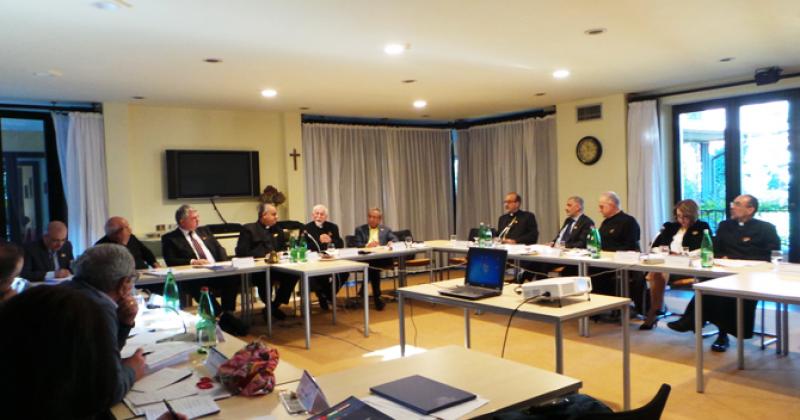Marking the first anniversary of the forced displacement of the brethren who fled from Mosul and its environs to Jordan, Lebanon and the Western countries; coinciding with the numerous conferences being convened to discuss “the future of Christians” in the Orient; and after my return from “the intellectual retreat” held in Como, Italy--organized by the Catholic Center for Studies and Media in cooperation with the Konrad-Adenauer-Stiftung, which is active in Amman, and attended by 17 intellectuals and specialists, mostly Arabs, living in various parts of the world or teaching in several universities in more than one country--it is of prime importance to underline some of the facts that serve as landmarks for consideration at present and the future.
First: What is taking place in the Arab world, or in some of its countries, escalates worry-- neither about the future of the Christian component of the dear Orient nor about the violent and extremist groups that demand the elimination of plurality and do act in this direction--but about the basic identity of the Orient which can never be anything but uniform in plurality. If we imagine the Orient stripped of its religious, ethnic and cultural plurality, then this will definitely mean having “havoc” wreaked and undermining the Orient’s genuine and historical identity.
Second: What is being perpetrated against the Christians in this region is definitely being perpetrated against all the components of the region, particularly the followers of the Muslim religion who suffer, like others, from acts of violence and extremism. His Majesty King Abdullah II had explicitly said in Austria a few days ago that ISIS killed 100,000 Muslims. Thus, terrorism cannot be considered as a war on followers of a specific religion. It is a war of aggression aimed at the whole humanity which has been closing ranks more than ever in the past and striving to save itself from the evils of alienation, fanaticism and hatred that definitely lead to violence. This, of course, requires “humanitarian unity” that transcends any differences so as to build a unified force designed to confront the forces of extremism, fanaticism, hatred and exclusion which confront humanity as a whole.
Third: What is taking place demands that various Churches and Church organizations act wholeheartedly and in unison. This process may start with simple initiatives such as the unification of the dates of Easter celebrations as has been the case with the Churches of Jordan since 1975. This will give the world the impression that Christian unity in the Orient will be necessary in the defence of the sublime plurality in the Orient.
Fourth: Education is essential in maintaining the components of the Orient. It transcends the school curricula produced by the ministries of education or foreign curricula. The whole idea is to have teachers serve as models to be emulated through their enlightenment and deeds with regards to respect for religions and to urging the students to experience mutual respect and close cooperation.
Fifth: Despite the fact that there is an exigent need to have the Western countries welcome the refugees and the displaced who follow various religions, they are called upon to be morally committed not only to serving as protectors and guardians of plurality, but also to quench the Orient’s fires as well as to assiduously and unstintingly serve to combat terrorism. This has to be followed by finding political solutions in Syria and Iraq that decisively and effectively block the way in the face of terrorist forces.
In short, responding to the questions raised by media worldwide which states: "The Christians of the Orient, where to?" The answer is "They are staying here to fulfill their spiritual, humanitarian and cultural mission."
